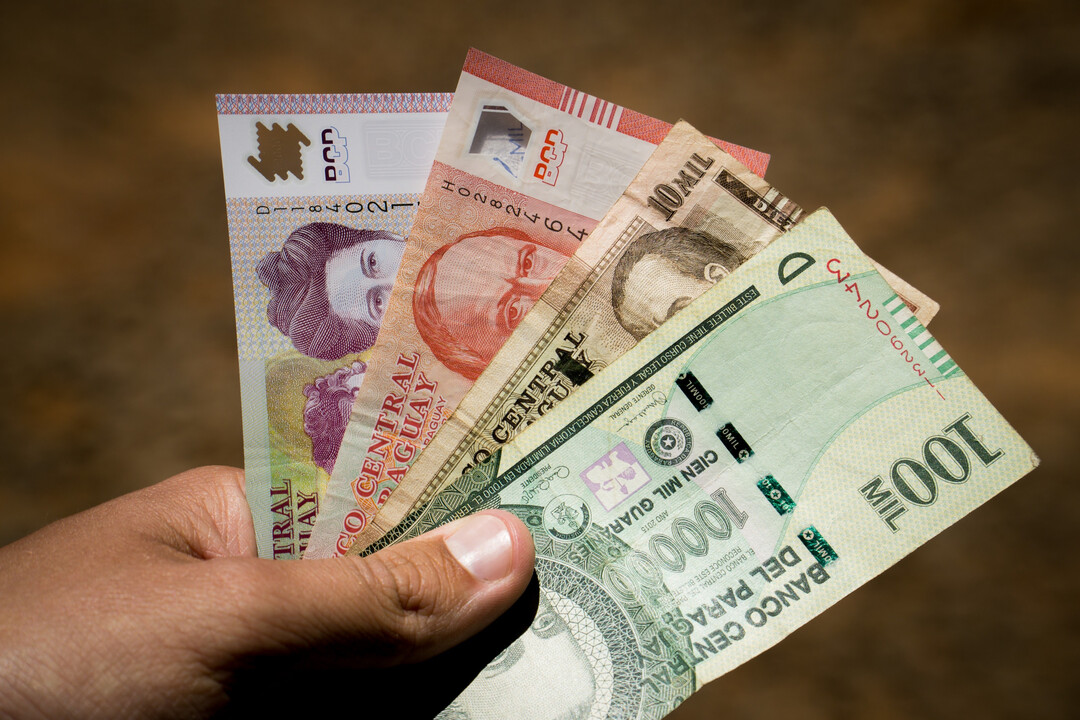
Asunción, Paraguay – The Paraguayan Ministry of Finance and Economy announced today (June 6) that the Treasury has disbursed 97 billion guaraníes (over US$12 million) to public sector suppliers and creditors. This payment was made in response to resource transfer requests (STR) received on Tuesday and Wednesday, primarily funded through public credit resources and institutional funds.
Although the Ministry of Finance and Economy did not disclose specific beneficiary information, this payment demonstrates the government's commitment to its transactions with the public sector, which constitutes a significant part of the national economy. Despite facing criticism regarding a lack of transparency, this large-scale disbursement is expected to stimulate economic activity and maintain the financial health of suppliers.
Funding Sources and Major Beneficiary Ministries
Of the total disbursed amount of 97.834 billion guaraníes, a substantial portion was covered by public credit resources. Approximately 69.06 billion guaraníes (about US$9 million) falls into this category, mostly allocated to suppliers of key ministries such as:
Ministry of Public Works and Communications (MOPC): Large expenditures related to infrastructure projects are anticipated. Paraguay consistently invests in expanding its infrastructure, including road and bridge construction, providing a significant cash flow to suppliers of this ministry.
Ministry of Labor, Employment, and Social Security: This includes payments to suppliers of goods and services necessary for the government's social programs and labor-related services.
Ministry of Interior: Funds were allocated to suppliers of equipment and services related to public safety and security.
These expenditures are analyzed as part of the government's efforts to maintain essential public services, improve infrastructure, and contribute to job creation.
Institutional Resources and Other Payees
The remaining 26.867 billion guaraníes (approximately US$3.5 million) originated from institutional resources, with a significant portion specifically disbursed to suppliers associated with the National University of Asunción (UNA). The university procures various goods and services to support its educational and research activities, which serves as an important source of income for these suppliers.
Additionally, 1.961 billion guaraníes (approximately US$250,000) was paid from Treasury resources, i.e., general revenue collected through taxes. These funds were allocated to suppliers of the following ministries:
Ministry of Public Works and Communications (MOPC): Estimated expenditures related to minor maintenance or operational costs.
National Institute of Statistics (INE): Paid to suppliers of services and equipment necessary for statistical data collection and analysis.
Ministry of Agriculture and Livestock (MAG): Includes expenditures related to improving agricultural productivity and farmer support programs.
Office of the President: Expenditures are anticipated for goods and services related to government operations and events.
Ministry of Public Health and Social Welfare: Funds were allocated to suppliers of public health services and medical equipment.
These expenditures demonstrate the government's efficient allocation of funds necessary for performing basic administrative functions and providing public services across various sectors.
Transparency Controversy and Future Challenges
The Ministry of Finance and Economy previously announced that it disbursed over 1.4 trillion guaraníes (over US$185 million) to state-owned enterprise suppliers in April and May. However, despite these large-scale payments, detailed information regarding specific beneficiaries and the nature of the payments remains undisclosed, leading to ongoing criticism about a lack of transparency.
Civil society organizations and the media argue that the government should provide detailed information on the flow of public funds to enhance accountability and reduce the potential for corruption. Especially in the current economic climate, efficient fund execution and transparent information disclosure are essential for gaining public trust and ensuring economic stability.
Moving forward, the government must address these transparency concerns and regularly disclose detailed information on the use of public funds to satisfy the public's right to know and demonstrate efficient financial management. This is expected to positively impact Paraguay's economic development and democratic strengthening in the long run.
[Copyright (c) Global Economic Times. All Rights Reserved.]






























